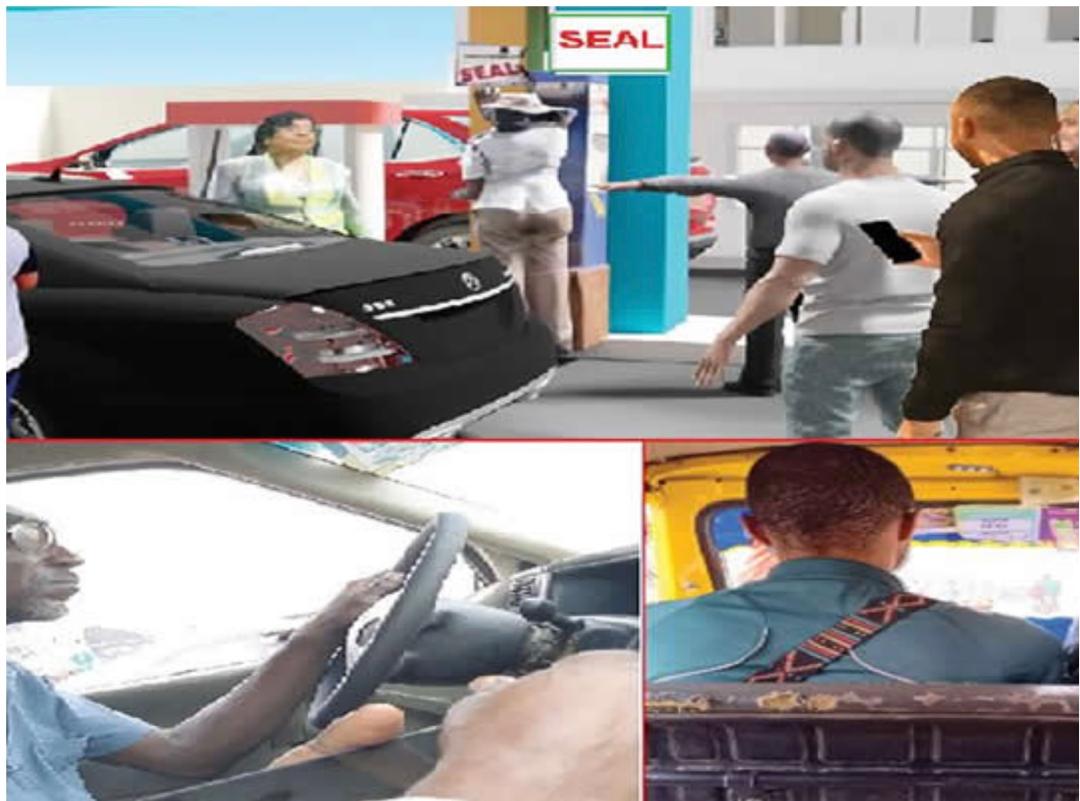As fuel availability fluctuates, the few who attempt to fill their tanks often encounter not just long queues and inflated prices, but also the blunt reality of exploitation at filling stations where rigged nuzzles and altered meters turn a simple act of refuelling into a frustrating encounter, BABATUNDE TITILOLA reports
He sighed deeply. Waves of worry covered his face as sweat trickled down from his dark forehead. Yekini Ismaila has been driving his tricycle for over nine hours. His look showed a mix of emotions – tiredness and frustration. Ismaila could only mumble to respond to his passengers’ questions.
Every morning, he sets out to work, picking up passengers along the Magboro-Akeran Road in the Akeran town of Obafemi Owode Local Government Area of Ogun State.
The little he makes for the day is barely enough to feed his family. He also has to set aside an amount to pay as instalments for the tricycle at the end of every week.
The 36-year-old got the second-hand tricycle through a hire-purchase agreement in February 2024. This agreement means he and his family are in debt for a period until payment for the tricycle is completed.
Apart from the struggle to balance his family’s welfare and the hire-purchase commitment, Ismaila’s experience as a commercial driver is affected by fuel scarcity, increasing prices, and bad road networks.
“It is as if the fuel disappears immediately after they pump it,” Ismaila groaned as he manoeuvred the potholes on the road. “I pay N7,500 in instalments every week. It is a lot.”
In the last one year, Nigeria has faced fuel scarcity which is often followed by hikes in fuel prices. Ismaila, who was a motorcycle rider in Lagos State before a ban affected the business, did not know the situation of fuel would become worse. After enduring a few months of hunger in Lagos, he moved his family to Ogun in the hope of a better life.
But as reality stared in his face that Thursday afternoon, Ismaila could not help but share his deepest worries about the exploitation at filling stations.
He said, “I have a family to care for, a tricycle to repair, and instalments to pay. I used to notice that the petrol we pay for is not what they usually sell. But to get down from your vehicle, empty your tank, and measure the petrol they sell is hard. These days, I buy petrol inside a keg to measure the quantity. I can also monitor how much fuel this keke consumes.”
Sunday PUNCH investigated Ismaila’s claim and discovered widespread manipulation of fuel dispensers and tampering with meters in many filling stations.
Between July 16 and August 4, this reporter visited different filling stations in Lagos and Ogun states to buy the same amount of fuel.
Using kegs of the same sizes, it was discovered that the quantity of fuel was not the same – one keg had more fuel compared to the other.
This showed that some filling stations prioritised profit over integrity. Fuel pumps, designed to deliver precise measurements, are being rigged to shortchange consumers, leaving them with less fuel than they pay for.
This manipulation places an additional financial burden on families already grappling with the economic hardship in the country.
Fuel attendant’s tricks
For years, Ishola Ojetunde did not trust the filling stations along the Berger-Interchange route of the Lagos-Ibadan Expressway. Despite plying the route four times a week to deliver retail goods or drop passengers, he was always prepared not to have a reason to drive into any filling station along that road.
But one day, the scarcity of fuel gave him no choice. He needed to refuel his bus on his way to the interchange, and he drove into a filling station in Asese.
“I bought only N15,000 worth of fuel because I didn’t trust their filling station around here,” Ojetunde told Sunday PUNCH. “I knew I had to buy fuel when coming back from Interchange and was going to buy more when I got to Berger on my way to Ketu in Lagos.
“So, I parked by the filling station and told the lady to fill N15,000 worth of petrol. Immediately, a girl selling plantain chips came to my side and started talking to me about buying chips. While we were talking, the petrol attendant just said that she was done. I was shocked but since I was not looking, I could not argue.”
About 20 minutes later after Ojetunde continued his journey to deliver goods at the interchange, his vehicle started showing signs of low fuel.
“I was very angry but could not turn back,” he added.
The following day, Ojetunde, while commuting passengers along the same route on the Lagos-Ibadan Expressway, returned to the filling station to report the attendant to a manager.
When he met the attendant to inquire what had happened the previous day, the lady, sensing Ojetunde’s angry look pleaded with him to temper justice with mercy.
“I asked her if she would fill the remaining fuel she stole the previous day or if I should report to her manager that she stole my fuel and defrauded me.
“I told her that I knew that the girl selling chips was talking to me to distract me from monitoring the machine.
“When she saw that I was serious, she started begging that I should not report her. She pleaded that she would give me N5,000 worth of fuel,” Ojetunde told Sunday PUNCH.
Ojetunde wanted to ask for more but the attendant pleaded that she had used the money for “an emergency” and would not be able to cover the cost. The passengers intervened during this argument and pleaded with Ojetunde to pardon the attendant.
Punch












